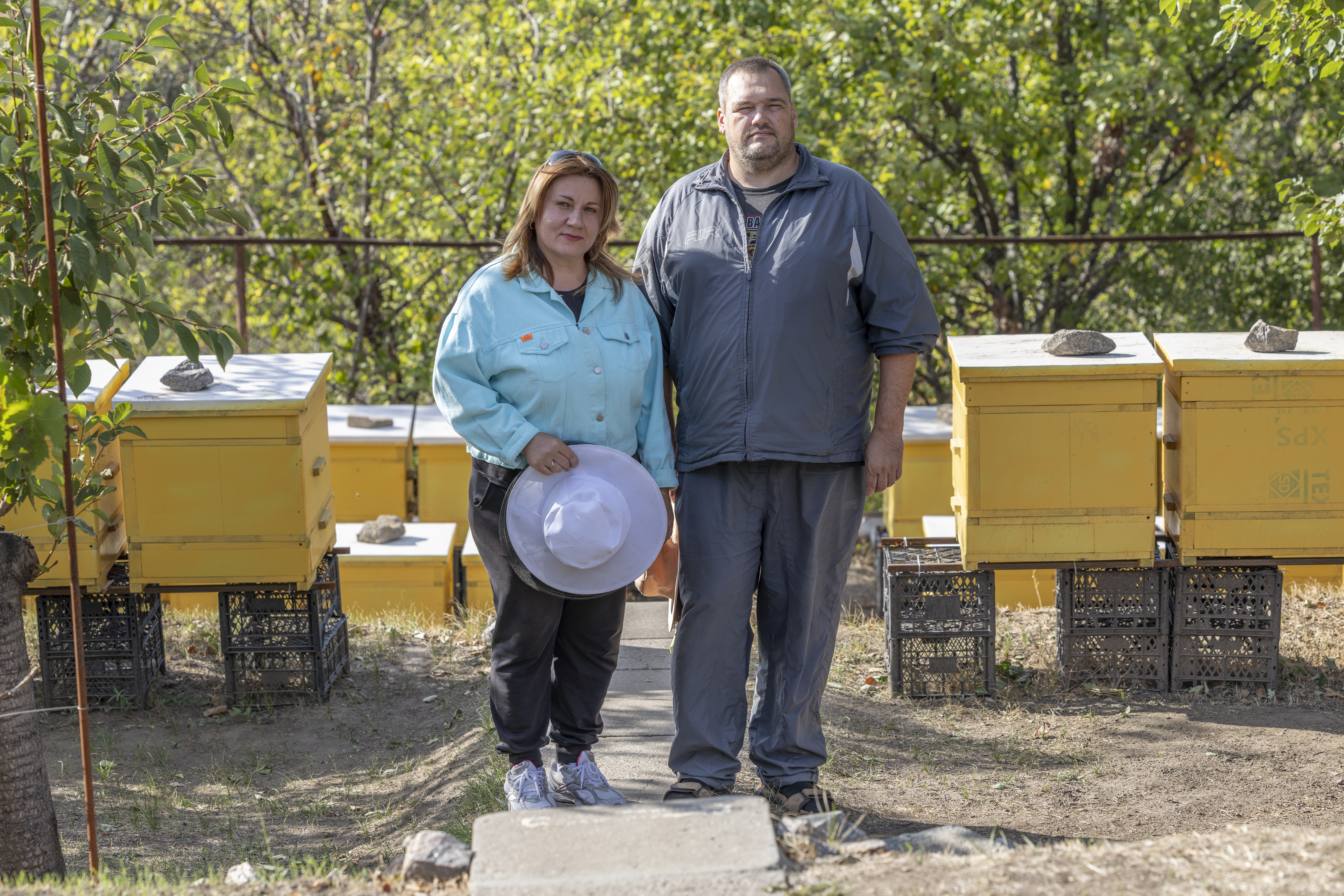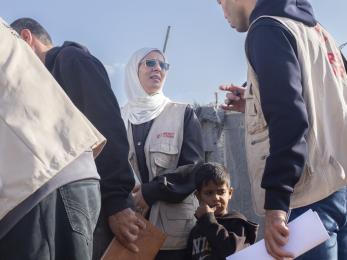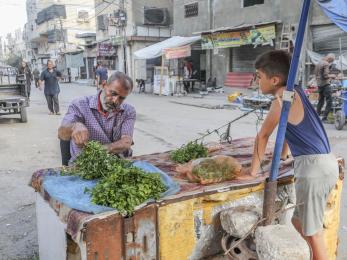In the face of hunger, a doctor's knowledge goes viral
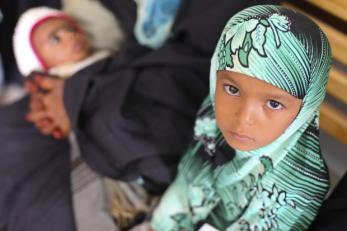
After nearly two years of war in Yemen, the damage is staggering.
More than 3 million people have fled their homes and some 14 million — more than half the entire population — face hunger.
Children are particularly at risk. Around 3 million children and pregnant or nursing mothers are suffering from or on the verge of severe malnourishment.
Since the start of the conflict we’ve been on the ground helping people caught in the crossfire meet their basic needs. We have distributed critical supplies like hygiene kits, blankets and mattresses and rehabilitated sanitation systems in schools and medical facilities. We’ve delivered clean water to those who can’t access it and provided food vouchers so families don’t have to go hungry.
We’re also tackling the hunger problem by promoting breastfeeding — a natural practice that conflicts with the traditional thinking in Yemen about newborn nutrition.
“No one was teaching these mothers that they should breastfeed after they gave birth,” explains Dr. Murad Dahan, Mercy Corps’ nutrition adviser in Yemen. Dahan spent his early days practicing medicine in Taiz, in southwestern Yemen, after graduating medical school.
Even as a qualified Yemeni medical professional, he was not aware of the value of breastfeeding. But in a country that has long experienced troubling rates of child malnutrition — and now faces massive food shortages — teaching mothers about breastfeeding has never been more crucial.
A natural practice that defies traditional thinking
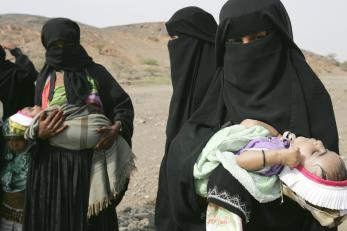
While breastfeeding is understood in some parts of the world as essential for the first six months of a baby’s life, it is not accepted as vital for newborns everywhere.
Only about half of all babies born in the world are breastfed within the first hour of life. And in Yemen, only 30 percent of babies receive breast milk within the first three days.
“In Yemen, we have these traditions that say newborn babies must drink water, especially right after birth,” Dahan says. “Most of the women in the rural areas believe that during the first three days after giving birth they should not breastfeed because the breast milk is discolored and is bad for the baby. No one knows that coloring is normal and that infants need their mother’s milk right away. Even I didn’t know this.”
Dahan says he first learned about the global standards for Infant and Young Child Feeding (IYCF), which include exclusive breastfeeding for the first six months of a child’s life, when he joined Mercy Corps’ nutrition program in Taiz in 2012.
When he realized thousands of babies were missing out on the nutritional benefits of breastfeeding, he became determined to spread these messages throughout communities in Yemen.
But Dahan could not yet fully understand the challenges that come with trying to convince women in Yemen that changing feeding habits will actually benefit their babies. New mothers here are influenced by years of tradition and dozens of passionate female family members that tell them the opposite.
Change begins at home
Then Dahan’s wife became pregnant.
“I gave her the Yemen health guidelines to read,” he says with a laugh, knowing that only a medical doctor would give his wife such a document to read during her pregnancy. “I asked my wife to promise that when our baby comes, she will do exclusive breastfeeding for the first six months, even if our families put pressure on her to give water and other fluids.”
It was a difficult promise to keep. When his wife Cami gave birth, she tried to breastfeed her baby, but she was producing very little breast milk.
“She cried so much and our baby cried,” he recalls. His parents became angry with him for putting his wife through additional pain. They were also concerned that without water and additional food, the baby would never grow or walk or talk, as Yemeni traditions say.
But the couple persisted, committing to only giving their new daughter breastmilk until she reached six months old.
“And then she was so strong at six months old. And she never became sick,” he says proudly.
His daughter, Lamar, babbled — despite the belief that she would never talk. She crawled and moved, even though it was expected she would never walk.
And, most importantly, she continued to grow.
“When I measured her with the MUAC tape…” he says again with a laugh, referring to the band that health workers use to measure the upper arms of children when screening for acute malnutrition. “She was perfect.”
Better nutrition becomes widespread
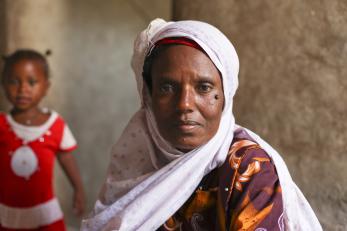
“After that, my wife’s brother saw my baby was very strong and never sick,” Dahan says. “So he tried the practice with his wife and their baby when she was born. He promised they would not give their baby any milk products, just breast milk." When his wife started seeing her baby strong and healthy, she shared the same feeding information with all of her sisters.
“Just last month one of her sisters gave birth and she is also only doing breastfeeding. When recently I visited my relatives, everyone recognized me as the man who does not let his wife give water, just breast milk. They asked me how is my daughter. I am happy to tell them that she is very strong.”
He keeps photos of Lamar in his phone that show a giggly little girl with bold, brown eyes, and two speckles of bottom teeth all wrapped up in plump, pink cheeks.
Now Dr. Murad trains health volunteers to share infant and young child feeding messages, especially the importance of exclusive breastfeeding, with their communities — and he has a response if they object to spreading this information.
“The volunteers complain about the stigma [of exclusive breastfeeding] because of the traditional practices. Mothers worry that if they don’t give water, their baby will not talk, walk, or grow. Then I share my story,” he says.
“It’s like I am one of Mercy Corps’ beneficiaries. I would not have known all these things about breastfeeding without my training, even after I went through medical school.”
